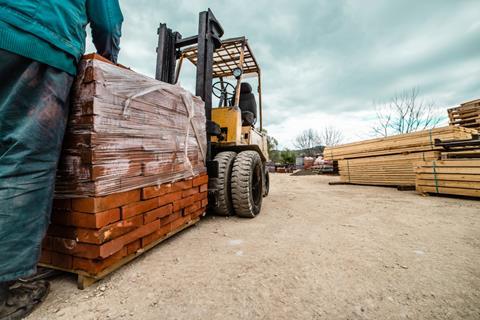Trade body believes 20% tax hike could see SME merchants and suppliers scaling back their operations
The Builders Merchants Federation (BMF) is to write to the government expressing “grave concerns” over the impact of the new inheritance tax changes on the industry.
The trade body said a hike in the tax announced by chancellor Rachel Reeves in the autumn Budget could remove incentives for private and family-owned businesses to invest in the future.
New rules set to come into force on 6 April next year will set an upper limit of £1m on assets eligible for Business Property Relief.
Above this level, available relief will be reduced by half, putting an effective inheritance tax rate of 20% on all business assets, including unquoted shares in a family company, after the first £1m.
BMF chief executive John Newcomb said it was important that Reeves’ Budget did not “wipe out” its stated aim of stimulating economic growth.

>> See also: Budget hits employers as Reeves raises taxes by £40bn
He said: “Construction is absolutely critical to the lifeblood of the UK economy, but we are hearing across the industry that the changes in inheritance taxation could limit the future of the sector, with many private and family businesses across our membership reporting back that the impact of Business Property Relief will damage enterprise.”
Newcomb added that the end result could be a “scaling back” of operations at SME merchants, suppliers and builders in light of the changes, which he warned would have a significant impact on the whole economy.
The BMF is now raising the matter with senior government ministers to call for a discussion on how best to address the challenges.
David Berry, managing director of Lancashire firm C&W Berry, was visited by Keir Starmer two days after this year’s general election was announced.
“I would like to ask him now how we handle this situation,” Berry said.
“For nearly 50 years, Business Property Relief has encouraged family-owned businesses to make long-term investments, creating financially stable businesses, offering secure employment, contributing to economic growth and generating annual tax revenues.
“These proposed tax changes put that business ethos at huge risk,” he added, urging the government to re-think the changes “before it is too late”.
Nick Howarth, managing director of Yorkshire timber supplier Howarth Timber, said the tax would greatly reduce the incentive for individuals to set up and run a family enterprise or risk their own capital.
“Entrepreneurs will think ‘why I should risk my home and work long hours to build a business?’,” he said.
“The end result is a situation that puts the country’s economic growth at risk, alongside the £200bn of tax that family businesses collectively pay to support public services every year.”
Howarth said the changes could undermine the model of multi-generational ownership, threaten the ability of firms to modernise and grow and jeopardise the country’s ability to build new hospitals, schools and homes.
Billionaire inventor James Dyson is among business leaders who have criticised the government for the move, saying earlier this month that it would “eviscerate” family run businesses and would be the “death of entrepreneurship”.




























No comments yet